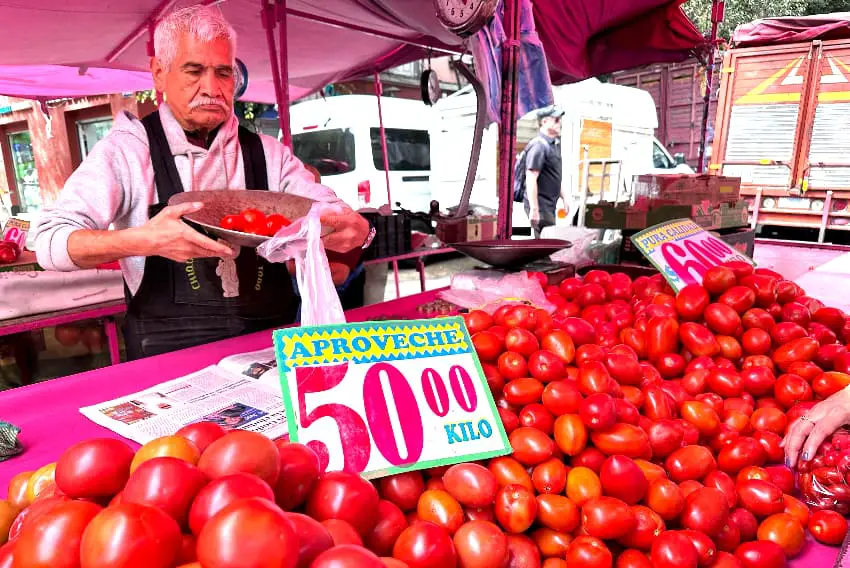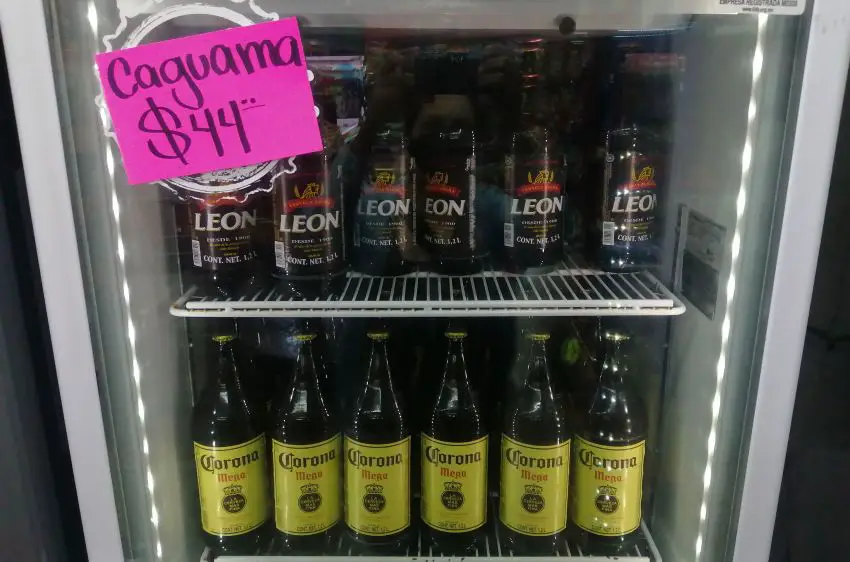Mexico’s excise tax brings higher prices on gas, alcohol and more

Consumers in Mexico should expect to pay higher prices for gasoline, alcoholic beverages cigarettes and soft drinks in 2025 due to a 4.5% increase in the IEPS excise tax.
In accordance with Mexican law, the increase in the Special Tax on Products and Services (IEPS) — which is levied at different rates depending on the good or service — is in line with Mexico’s headline inflation rate at the end of 2024.

The IEPS brought in revenue of more than 570 billion pesos (US $27.6 billion) in the first 11 months of last year, making it the third largest generator of tax income for the federal government after income tax and Mexico’s value-added tax.
Here is a summary of how the 4.5% increase to the IEPS rate will lift prices for certain products this year.
Gasoline and diesel
- The IEPS on magna, or regular, gasoline is now 28 centavos higher at 6.45 pesos per liter.
- The IEPS on premium gasoline is now 24 centavos higher at 5.45 pesos per liter.
- The IEPS on diesel is now 30 centavos higher at 7.09 pesos per liter.
* NOTE: The federal government sometimes offers fuel subsidies that reduce the price motorists pay when filling up.
During the first 10 days of January, the IEPS on regular gasoline will be 23 centavos lower at 6.22 pesos per liter thanks to a 3.57% government subsidy.


During the same period, the IEPS on diesel will be 3 centavos lower at 7.06 pesos per liter thanks to a 0.37% government subsidy. There will be no subsidy for premium fuel during the first 10 days of 2025.
So, how much will you pay when filling up your vehicle in early 2025?
According to fuel market data cited by the El País newspaper, the average price in Mexico for one liter of fuel on Jan. 1 was as follows:
- Regular gasoline: 24.04 pesos per liter (US $1.16 at the current exchange rate).
- Premium gasoline: 25.38 pesos per liter (US $1.23).
- Diesel: 25.73 pesos per liter (US $1.25).
Alcoholic beverages
The IEPS rate for alcoholic beverages varies depending on the alcohol content, or alcohol by volume (ABV).
The rate for beverages with an ABV up to 14% (beer and many wines) is lower than those for stronger beverages such as spirits.
Consumers should expect to pay slightly higher prices for alcohol as a result of the 4.5% increase to the IEPS.
Soda and other ‘flavored beverages’
The new IEPS for refrescos (soda/soft drinks) and other bebidas saborizadas (flavored beverages) is 1.64 pesos per liter, an increase of 7 centavos compared to 2024.


Cigarettes
In 2025, smokers will pay an IEPS of 64 centavos per cigarette, an increase of almost 3 centavos compared to 2024. The IEPS on a pack of 20 cigarettes is therefore almost 13 pesos, nearly 1 peso higher than in 2024.
Processed food
The IEPS also applies to processed foods such as potato chips, chocolate, peanut butter and candy. Such products will consequently be slightly more expensive in 2025.
Even before the higher IEPS rate took effect, Mexico’s largest baker, Grupo Bimbo, increased the price of some of its products by 1 peso. Those increases took effect Dec. 23, according to the newspaper La Jornada.
Services
The IEPS is also levied on certain services including mediation, brokerage and the distribution of alcohol, cigarettes and junk food.
Therefore the price of such services will likely increase in 2025.
The post-holiday financial blues
While many Mexicans receive an aguinaldo payment (an annual entitlement for formal sector workers) in December, financial stress is common in the first month of the year
Higher-than-usual spending over the holiday period as well as price hikes that take effect in January leave many Mexicans struggling to make ends meet in January. The phenomenon is known as “La cuesta de enero,” which could be translated to English as the uphill struggle of January.
In addition to the increase in the IEPS on Jan. 1 2025, “tax cuts on food and energy will disappear” and “there will be new taxes on electronic cigarettes,” La Jornada reported.
In addition “large telecommunications companies will increase their rates,” the newspaper said, while products purchased on foreign e-commerce sites could become more expensive as companies such as Amazon and Temu will now have to pay Mexico’s 16% value-added tax on products they export to and sell in Mexico.
Thankfully, many workers will get a pay rise this year as Mexico’s minimum wage increased 12% on Jan. 1.
The cost of living in Mexico has risen significantly in recent years due to inflation, which peaked at 8.7% in August and September 2022.
With reports from El País, El Economista and La Jornada
Source: Mexico News Daily

